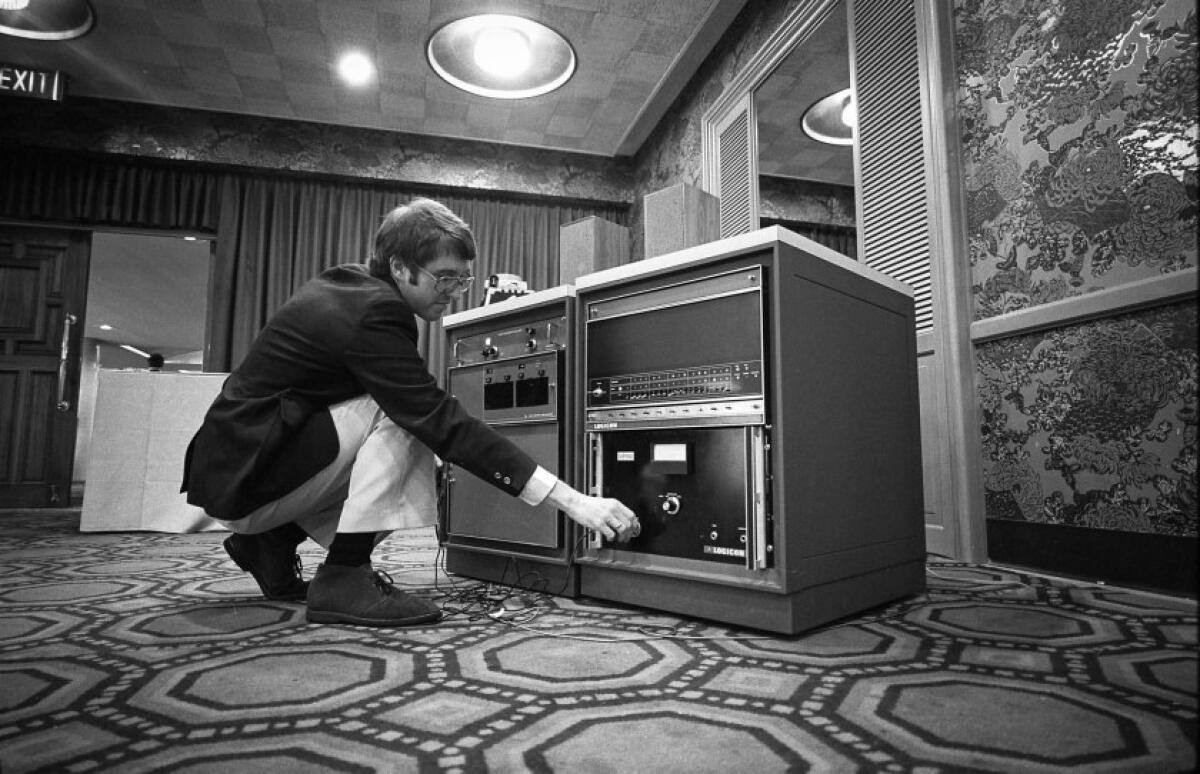Todayâs Headlines: What went wrong in Afghanistan?

Here are the stories you shouldnât miss today:
TOP STORIES
What went wrong in Afghanistan?
Twenty years ago, the mission seemed direct, clear and just: invade Afghanistan and pursue, capture or kill Osama bin Laden, mastermind of the 9/11 terrorist attacks, and his armed band of followers.
Achieving that goal also included overthrowing the Taliban, and steadily the mission morphed into a vast, complicated experiment to reshape a society that few Americans understood.
After a war stretching over four U.S. presidencies, over $1 trillion and tens of thousands of lives lost, the once-routed Taliban has retaken power in a swift march across Afghanistan, barely meeting resistance, occupying the presidential palace and driving the remaining U.S. troops to a single redoubt: an airport now swamped with Afghans desperate to flee.
Despite its military might, expertise and investment, the United States badly miscalculated the speed and absolutism with which the Taliban would overtake Afghanistan and is handing a battered country back to the very people the U.S. sought to defeat, with any gains in nation-building, education and civil rights in jeopardy.
Why? And who is to blame?
Start your day right
Sign up for Essential California for the L.A. Times biggest news, features and recommendations in your inbox six days a week.
You may occasionally receive promotional content from the Los Angeles Times.
Why Delta variant means masks and mandates for vaccines
The rise of the Delta variant has upended previous optimistic projections of herd immunity and a return to normal life, with many health experts believing mask mandates and tougher vaccine requirements will be needed in the coming months to avoid more serious coronavirus surges.
While there are promising signs that Californiaâs fourth coronavirus surge may be starting to flatten, the fall and winter will bring new challenges as people stay indoors more often and vaccine immunity begins to wane.
âAnd during times of increased transmission, weâll need other tools available to protect all of us â and particularly those who, at this time, canât be vaccinated, like our children,â said UC San Francisco epidemiologist Dr. Kirsten Bibbins-Domingo.
This pandemic will eventually end, as all pandemics do. But controlling it will be challenging, and how will probably depend on human behavior.
More top coronavirus headlines
â Many overwhelmed hospitals, with no beds to offer, are putting critically ill COVID-19 patients on planes, helicopters and ambulances and sending them hundreds of miles away to far-flung states for treatment.
â Free testing was supposed to be a fundamental aspect of Americaâs response to the COVID-19 pandemic. But thereâs a nasty loophole in the law, writes business columnist David Lazarus.
â As hospitals fill up, Oregon Gov. Kate Brown says all teachers, educators, support staffers and volunteers in K-12 schools must be vaccinated against COVID-19.
For more, sign up for Coronavirus Today, a special edition of The Timesâ Health and Science newsletter.
When the wells go dry
Fourteen years ago, Heriberto Sevilla came across a ranch on the outskirts of Madera set among fields of stalk grass and bright wildflowers.
It was the perfect place for his family. But amid two years of relentless drought, the output of the propertyâs well has slowly tapered off. His family has been forced to buy gallons from the grocery store and borrow water from their neighbor.
Theyâre one of thousands of households across the San Joaquin Valley that have watched their wells go dry amid increasingly hot temperatures and drought. Every year, a new town in this verdant agricultural region seems to be pushed over the brink by water scarcity. And in the era of the coronavirus, inequities have become magnified in an area that already had some of the highest poverty rates in the state.
Larry Elderâs ex-fiancee emerges as leading critic
As Elder continued to lead a pack of contenders who hope to replace Gov. Gavin Newsom in the California recall election, Politico reported that the relationship devolved to the point that Elder allegedly checked to see whether his .45-caliber revolver was loaded, during a heated argument with his radio producer and now ex-fiancee, Alexandra Datig.
Datig relayed a similar story, as well as other allegations against Elder, in an interview with The Times last week.
More top California headlines
â With more than a million acres burned fairly early in the fire season, California is entering uncharted territory as the record dry conditions that have fueled so much destruction will soon combine with seasonal winds that fire officials fear will bring unprecedented dangers.
â As Congress moves ahead with its infrastructure program, the California bullet train is still trying to sort out where it will fit in as funding deadlines loom.
â Legislation that would allow new multifamily housing developments in some California communities is shaping up to be the most significant housing bill in Sacramento this year, even though its impact on the stateâs housing crunch would probably be limited.
â Before 4-year-old Noah Cuatroâs killing, authorities wavered on rescuing him. An investigation found that errors, misjudgments and bureaucratic conflict within the L.A. County child welfare system â including among top supervisors â blocked multiple opportunities to protect Noah.
Sign up for our California Politics newsletter to get the best of The Timesâ state politics reporting, including full coverage of the recall election and the latest action in Sacramento.
Our daily news podcast
If youâre a fan of this newsletter, youâll probably love our new daily podcast, âThe Times,â hosted by columnist Gustavo Arellano, along with reporters from across our newsroom. Every weekday, it takes you beyond the headlines. Subscribe on Apple Podcasts and follow on Spotify.
FROM THE ARCHIVES
In 1976, Logicon Corp. was developing an early version of technology that allowed computers to understand human speech. As the company prepared to hold its annual meeting at the Los Angeles Hilton, an engineer demonstrated one of its voice-recognition computers for Times staff writer Alexander Auerbach on Aug. 23.
According to the story that ran the next day, the computer could respond with its own words, strung together from a library of 60 sounds. Logicon engineer Mike Grady asked the computer if it knew any songs. Auerbach wrote that the machine responded by singing âMary Had a Little Lamb.â The machine âwonât be a contender for the Top 40. Itâs tone deaf and sounds like it has a stuffed-up nose,â he wrote. âBut itâs a hit at what itâs designed to do.â

YOUR WEEKEND
â Pop-ups. Merch drops. Events. These are the 10 hottest things to do in L.A. in August.
â When is a chicken nugget not a nugget? (And which one is best?)
â We found L.A.âs coolest plant shops, so you can stop searching and start shopping.
Support our journalism
Subscribe to the Los Angeles Times.
NATION-WORLD
â A North Carolina man who claimed to have a bomb in his black pickup truck surrendered to authorities after a five-hour standoff that forced police to evacuate buildings near the U.S. Capitol, sparking anxiety in a city still on edge months after a deadly insurrection by a pro-Trump mob.
â The Biden administration announced Thursday it will automatically erase student loan debt for more than 300,000 Americans with severe disabilities that leave them unable to earn significant incomes.
â A Texas law outlawing an abortion method commonly used to end second-trimester pregnancies was upheld Wednesday by a federal appeals court in New Orleans.
â Two doctors at hospitals treating earthquake victims in Haitiâs capital have been kidnapped, driving one of the institutions to declare a two-day shutdown in protest, officials said.
HOLLYWOOD AND THE ARTS
â The summerâs hottest ticket? For many Angelenos, itâs the return of Mexican superstars Los Bukis. The long-dormant group has announced a comeback tour.
â In her latest album, Lordeâs spare musings on the burden of fame donât sound like hits. Thatâll suit her just fine, writes pop music critic Mikael Wood.
â Newly minted âJeopardy!â host Mike Richards is already on his second round of damage control after past sexist comments he made on a podcast resurfaced.
â The Ventura County Sheriffâs Office has launched a misdemeanor battery investigation into Britney Spears after one of her housekeepers reported to deputies that the pop singer struck her during an argument.
BUSINESS
â Comcast and ViacomCBS are joining forces to create an international streaming service, SkyShowtime, to gain a presence in nearly two dozen smaller European countries, including Spain, the Czech Republic and Sweden.
â The number of people seeking unemployment benefits fell last week for a fourth straight time to a pandemic low, the latest sign that Americaâs job market is rebounding.
SPORTS
â An L.A. County Superior Court judge denied a restraining order request filed by a woman who accused Dodgers pitcher Trevor Bauer of sexual assault following four days of emotional testimony.
â WWE star Charlotte Flair is one of the most decorated wrestlers in history, winning multiple world titles while entertaining fans around the world. She will be competing Saturday for the Raw womenâs title against Rhea Ripley and Nikki A.S.H. in a Triple Threat match at the SummerSlam pay-per-view event in Las Vegas. She talked about a variety of topics during a recent phone interview.
Free online games
Get our free daily crossword puzzle, sudoku, word search and arcade games in our new game center at latimes.com/games.
OPINION
â As the nation continues investing in vaccine production, the most effective use of those vaccines, for now, is first doses, and then second ones, not third. The easy work of vaccinating the willing and those with access is done. The real trick is in figuring out how to get those needles to reach billions of untouched arms, writes The Timesâ editorial board.
â If Larry Elder is elected in the recall race to replace Newsom, life will get harder for Black and Latino Californians, writes columnist Jean Guerrero.
WHAT OUR EDITORS ARE READING
â If only weâd listened to Representative Barbara Lee, the only member of Congress who voted against what would become our failed forever war. (The Cut)
â Alabama has the lowest COVID-19 vaccination rate in the country, but Dorothy Oliver took matters into her own hands to get 94% of her small town vaccinated. (MSNBC)
ONLY IN L.A.
With nods to their Latino fan base and to the murals that grace the streets of Los Angeles, the Dodgers will take the field this weekend with âLos Dodgersâ across their chests. The combination of blue jerseys and blue pants is a first in the 138-year history of the franchise, the team said. The jerseys include a splash at the end of each sleeve, intended to represent the spray paint used for street art.
Todayâs newsletter was curated by Daric L. Cottingham and Laura Blasey. Comments or ideas? Email us at [email protected].
Sign up for Essential California
The most important California stories and recommendations in your inbox every morning.
You may occasionally receive promotional content from the Los Angeles Times.




